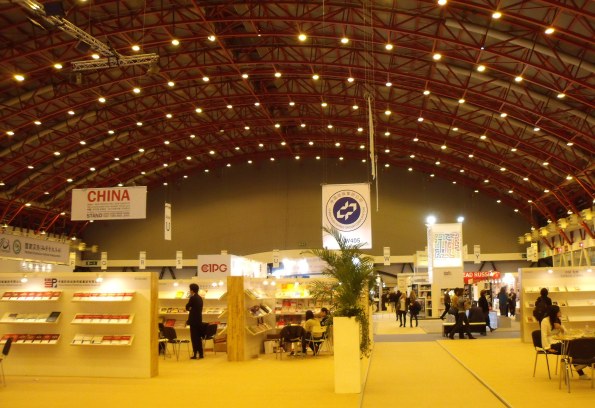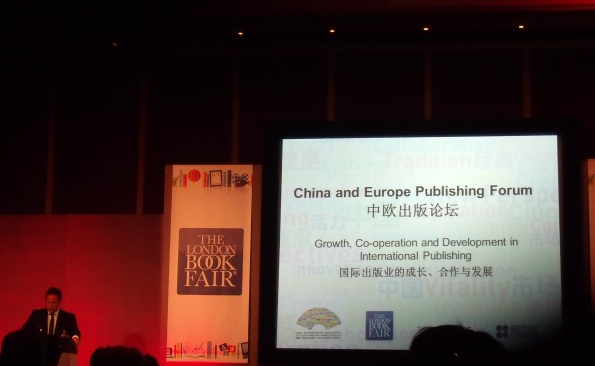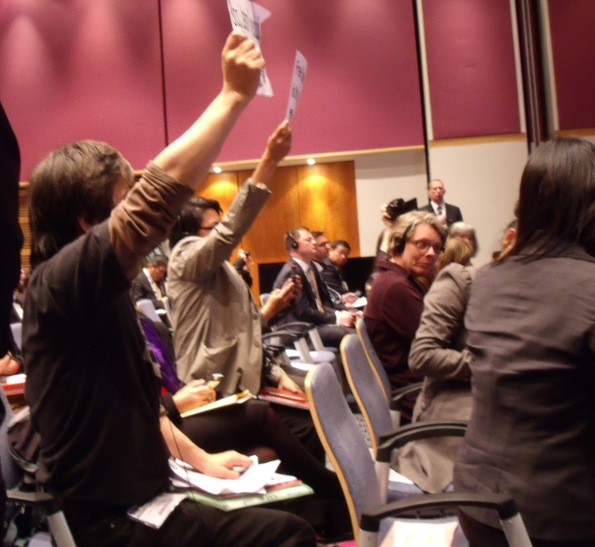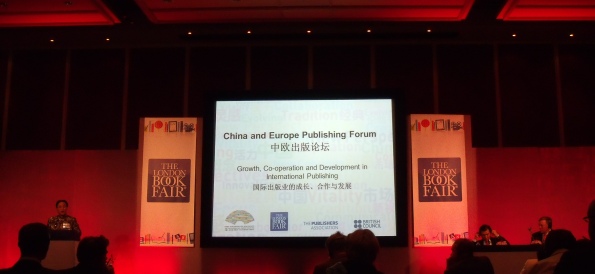Archive
Travel – Gladstone’s Library (St Deiniol’s), Hawarden, North Wales
Gladstone’s Library was founded by Victorian Statesman, William Ewart Gladstone (1809-1898), arguably Britain’s greatest Prime Minister, and the most significant Anglican lay person of the last two centuries. Four times Liberal Prime Minister, four times Chancellor of the Exchequer and a Parliamentarian for 63 years, few politicians have achieved as many lasting reforms as Gladstone. He even came within a hair’s breadth of bringing peace to Ireland with his sadly ill-fated Home Rule Bill.
Gladstone was a pragmatic political leader with an insatiable interest in history, literature, the classical world and theological dispute; a voracious reader who read 20,000 books. Britain at this time was the most powerful nation on earth, at the height of Queen Victoria’s imperialism.
I find it hard to reconcile Gladstone’s clear Christian conviction with the hypocrisy and barbarity of Empire. Yet he was solidly at the heart of it. Was he compromised by this or did he provide the conscience against even greater excesses?
‘We look forward to the time when the power of love will replace the love of power. Then will our world know the blessings of peace … nothing that is morally wrong can be politically right’. W. E Gladstone.
Gladstone, a millionaire, lived in the Castle in the village of Hawarden, North Wales, just a few miles from Chester. This is the site of St Deiniol’s Library which Gladstone founded. He bought the land in 1889 and the Library opened in 1894. The present Grade 1 listed building was opened in 1902 as the National Memorial to Gladstone. It is the only Prime Ministerial Library in the UK and is unique in being a residential library with 26 study bedrooms, some now fully refurbished and en-suite.
It’s a fascinating Victorian building; with the double-tier library occupying one entire wing and the residential areas including the dining room, kitchen and chapel the other. The bedrooms and offices are spread across the whole of the first floor. You quickly get to find your way around as the building is not actually that large.
I decided, after my week, that this is a rather special and unusual place.
Gladstone’s influence pervades the entire place. There is a huge granite statue in the grounds gazing out over the village! There are pictures, busts and other statues of the GOM (Grand Old Man) everywhere including a photo collage detailing the main aspects of his life in the main corridor leading to the dining room.
The library was created around Gladstone’s original donation of 32,000 books. It houses a world renowned collection of theology and nineteenth century studies. The collection boasts more than 250,000 items. Gladstone wanted his library to be a country house “for the Pursuit of Divine Learning”, offering ‘insight and refreshment’ to visiting scholars and users.
The library is galleried with access to the second floor up some very narrow, winding and rickety stairs with rope handholds! Here you go back in time. This is an old-style ‘quiet’ library; individual study tables with desk lamps and old comfy leather chairs. It’s extremely conducive to study and thought, which of course is the USP of the place. It’s why it works so well. You come here specifically to think, write, study, reflect and retreat. It’s open in the evening until 10pm which I found to be a real boon.
The book collection covers mainly theology and history with the emphasis on publications from the late Victorian period. The GladCat computer system makes finding books within the library very easy indeed. There’s a thrilling touch of serendipity to come across books with Gladstone’s own pencilled annotations!
The property has a mixture of older and the newer refurbished bedrooms. I had one of the older rooms (Room 7, no view) which was very spacious, with the bathroom directly opposite. There are no TV’s in any of the bedrooms which I think is good! Broadband is fast, free and available throughout the building although one guest said it didn’t work in some of the bedrooms. I had no problems. One bug-bear however was the horrible noise late at night and early in the morning caused by the expansion of the hot water pipes!
I found that in a very short time, the place draws you into its own daily rhythm. You feel very much apart from the day-to-day. There’s a lovely modern Chapel on the ground floor. Communion takes place each weekday morning at 8am, following the Church of Wales Anglican liturgy.
The ‘Food for Thought’ Coffee Shop replaces the dining room during the day and provides snacks and drinks. I found the food overall – both in quantity and quality – adequate but not noteworthy. After dinner, the Gladstone Lounge takes on the atmosphere of a club or common room. An honesty bar operates from this room. There is a good selection of daily newspapers available both in the dining room and in the lounge. The Fox and Grapes pub, just a short distance away across the road, serves good beer and food if, as I did, you want to get away from the library for just a while.
‘Be inspired with the belief that life is a great and noble calling, not a mean and grovelling thing that we are to shuffle through as best we can, but an elevated and lofty destiny’.
W. E Gladstone.
Book Trade – London Book Fair 2012: A Perspective
I attended the London Book Fair at Earls Court this week; the first time in several years. I was left with several over-riding impressions.
The Fair remains the premier International Book Fair. It was busy – very busy – with 25,000 delegates, half from overseas, attracted by the 1,500 exhibitors from 57 countries. The Bookseller suggested that the USA DoJ ruling on the Agency Model (eBook pricing) had dampened the mood considerably for rights sales.
I am very much against this ruling as it simply hands yet more power to an already menacing monopoly. I applaud those Publishers who have decided to fight this rather simplistic ruling. Amazon has already done considerable damage to our High Streets, and not just to Bookselling. It’s quite foolish to view Amazon as a consumer champion.
China – this year’s Market Focus – with their visually stunning Fair Pavilion (designed by Yang Liu). The Market Focus logo was in the shape of a hand-fan as used by the Royal Family in China 1500 years ago. LBF reported that China had sent 1,200 people (including 50 authors) representing 180 publishers – quite a commitment! So why China? Well, English and Mandarin are the two dominant world languages and China is a vast country with a 1.3billion population speaking over 50 dialects. It’s projected to overtake the USA as the world’s largest economy within the next 20 years or so, and yet paradoxically it’s still 90th on the GDP index despite its recent spectacular economic growth.
The sheer size of the country with its many regional imbalances and huge social challenges is overseen by the pro-business centralised Government. For the Western creative industries, protection of Intellectual Property and Copyright remains the pressing issue. Good quality translation skills remain scarce.
There is the inevitable controversy over issues of censorship when judged by the ideals of liberal democracy. Indeed, the Fair’s impressive China and Europe Publishing Forum attracted a goodly number of silent placard waving protesters; ‘Free speech is not a crime’, ‘Stop literary persecution’. The London Evening Standard ran an interview this week with the Chinese author of Wild Swans in which she stated that, in her opinion, ‘Censorship in China is worse than it was 10 years ago’.
The Chinese Government oversees all media output through GAPP and it is this body which issues the requisite ISBN’s. Since 1949, China has published around 34,000 titles of British books within China. Apparently, ¼ of all books imported into China are from the UK! Through its 600+ Publishing Houses and with a workforce of nearly 57 thousand employees’, China has the largest publishing output in the world by volume (300,000 titles in 2009). It’s a mature and self-confident market set to generate revenues of $9.5billion in 2012. China is poised to take over from the USA in levels of scientific journal publishing.
There are 167,000 bookshops across China, with some state-of-the-art seven-story bookshops in the largest cities. The number of bricks and mortar shops is growing by almost 5% per year! The state-run chain, Xinhua (new China) has 6,483 outlets.
Why is this of any interest to us Brits? Because there are more people learning English in China than anywhere else in the world and more English speakers in China than in the rest of the English speaking world. Language learning is paramount. For publishers, this obviously represents a huge market and a pressing opportunity. There is a very attractive market for educational and English language publishers!
I was very struck by Pearson’s almost evangelical mantra, ‘Not just touching people, but transforming lives through learning’.
Islam – I was forcibly struck by the number of large and impressive Islamic publishing stands at LBF. These were in stark contrast to the mainly small booths of the Christian publishers, aside from the usual welcome presence of Lion Hudson PLC. Islam clearly has plenty of financial backing, is investing heavily in literature and is clearly committed to book distribution in a way that some Christians seem to have forgotten.
Print still dominates, at around 80-85% of the UK market and much smaller elsewhere in the world. We should keep the eBook ‘hype’ in perspective. The digital presence at the Fair was actually quite small, tucked away in one smallish zone. Interestingly, KOBO eReaders have said that 10% of their eBook sales are now for self-published authors. In China, authors are uploading self-published works in instalments, books which are then picked up by publishers and eventually making their way into bookshops; the reverse of our model in the West!
UK Publishers do increasingly view their role as ‘Content Providers’ delivered via various platforms but print currently continues to dominate their activity.
LBF 2012. Quite an event, and yet again, another reminder of just how quickly our world is changing. The tide of globalisation and digitalisation continues to alter the way we all do business yet the basic desire to read remains.
In his summing up, Lord Powell of Bayswater said, ‘The English language is the highway to bring the world to China’. I suspect that China is actually finding her way to the rest of the world!
Book Trade – Photo Report; London Book Fair 2012
Social History: George Olliffe – Victorian Pauper, Brentford Union
Just 100 years ago in 1912, my Grandfather was one year away from the end of 12 years with the Colours and his discharge from 1st Battalion, Leicestershire Regiment (The Tigers).
This is Part 1 of his story …
In 1885, William Gladstone was Prime Minister for the second time, General Gordon had been killed by the Muslim Mahdi in Egypt and Imperial Britain was at the very height of its colonial power. Queen Victoria then ruled over the largest Empire the world has ever known. Yet whole sections of the British population were desperately poor and, unbelievably, were considered by the ‘Poor Laws’ as being responsible for their own plight.
This hugely unjust and unequal society was held together by the thin veneer of deference and Victorian Christianity. Mrs Alexander’s well known hymn, ‘All Things Bright and Beautiful’ summed up the social dogma of the time: The rich man in his castle, the poor man at his gate, God made them high and lowly and orders their estate’. That particular stanza is always omitted now!
In either 1883 or 1885 (depending on the record), my Grandfather was born to his father, William. From what we know, he appears not to have known his mother. At age 6, because it ‘all became too much for his father’ (my own father’s words), he was one of many thousands incarcerated in that terrible human dumping-ground for the Victorian poor; the Union Workhouse. In Grandads’ case, he lived at Percy House, Isleworth, the school attached to the Brentford Workhouse, now the site of West Middlesex University Hospital.
The Brentford Poor Law Union included 10 Middlesex parishes of which Acton was one.
The threat of the Union workhouse was intended to act as a deterrent to the able-bodied pauper. This was a principle enshrined in the revival of the “workhouse test” — poor relief would only be granted to those desperate enough to face entering the repugnant conditions of the workhouse. If an able-bodied man entered the workhouse, his whole family had to enter with him. Life inside the workhouse was intended to be as off-putting as possible. Men, women, children, the infirm, and the able-bodied were housed separately and given very basic and monotonous food such as watery porridge called gruel, or bread and cheese. (Source: www.workhouses.org.uk )
When Grandad joined the British army on 3rd February 1901, my Great-Grandfather, William Olliffe’s address was listed as Brentford Union, so he was obviously an inmate of the Victorian Poor House. When William eventually died, the question arises: did he actually pass away in the workhouse?
I’m told William was buried in Acton Cemetery, Grave no. 82.
The Percy House Schools, lent by the Brentford Board of Guardians, were located to the west of the Brentford Union workhouse. Opened in 1883 by the politician Sir Charles Wentworth Dilke (1843-1911), the Brentford workhouse school had been enlarged in 1901 and renamed Percy House after a local landowner, the Duke of Northumberland. The two-storey central administration block fronted onto Twickenham Road and contained offices, a chapel, a dining hall, the kitchens and storerooms. Flanking it were 3-storey wings containing accommodation for 280 children (boys in the north wing and girls in the south). The Building was demolished in 1978. (Source: www.workhouses.org.uk )
Grandad stayed there for at least 10 years and I can’t think it did him much good other than possibly keeping him alive. He left just before his 16th birthday to join The Leicesters; he was only 5 ft tall, weighed less than 7 stones (95 lbs) and his army medical lists a horrifying catalogue of scars all over his body. I couldn’t help but wonder just how these injuries were inflicted?
I have studied the 1891 UK Census documents and these confirm that my Grandfather was indeed a resident at Percy House.
On the night of Sunday April 5th 1891, Grandad is listed (Pg 8, Line 14) at Percy House (part of the Brentford Union Workhouse); Male, age 6, ‘Scholar’ (or more likely today, Pauper), born Acton, Middlesex. His name is spelt: George Olliff. The census is headed ‘Return of all persons who slept in the Institution on night of etc’ and Page 1 is clearly marked, Percy House. Sadly, there is no mistake!
I suspect that Grandad remained at Percy House School from 1891 until 1901 when he joined the army, as many poorhouse boys then did.
Many District Schools had a school band through which, for boys with a musical aptitude, could lead to a career in the army as a military bandsman.
On page 1 of the census the staff of Percy House are listed as ‘Officers’: George and Sarah Williams, age 33 & 34 from Esher, Surrey (respectively Superintendent / Headmaster and Matron of the School), followed by 7 single officers of the school and 14 servants including cooks and housemaids, aged from 16 to 51 (Jane White, a widow and infants attendant). Of these 23 officers and servants, only 5 were male including the Head, two schoolmasters and two stokers.
Kay proposed a grandiose scheme for establishing a hundred similar “District” schools across England and Wales each accommodating around 500 children who would be separated from what he saw as the polluting association with the adult workhouse inmates. In such institutions, he claimed, poor law children “would not be daily taught the daily lesson of dependence, of which the whole apparatus of a workhouse is the symbol… the district school would assume a character of hopefulness and enterprise better fitted to prepare the children for conflict with the perils and difficulties of a struggle for independence than anything which their present situation affords.” (Source: www.workhouses.org.uk )
I’ve pieced together the main events of Grandfather’s life but was hampered throughout by the various official spellings of his surname, a difficulty that persists even to this day for the rest of us!
George Olliffe
Born: Acton, Middlesex, 4th March 1885 (but a Birth Certificate records his actual birth date as 11th November 1883)
Died: Stow-on-the-Wold, Glos, October 1969
Pauper / Scholar, Percy House School, Brentford Union, age 6 – 15
(At least 10 years in this institution)
British Army Bandsman (clarinetist), 1st Bn, Leicestershire Regiment, age 16 – 28
(12 years ‘with the Colours’ – his clarinet remains in the family)
Time-expired Soldier during the Great War.
There is confusion over George Olliffe’s second name. His entire army record notes it as William whereas by the time of his marriage and on my own parents marriage certificate, George’s second name is recorded as James. I suspect that it always was James but that at his enlistment he gave his Father’s name as his second name, either out of confusion or ignorance?
On leaving the army, George played in a Dance Band and got a job as a high level crane driver at the London Power Company (then a private company) at Acton Lane Power Station. He had a head for heights and got the job as it involved walking along a girder to the cab of the crane. He fell once. My Father remembers walking to the Power Station with his mother at the week-ends with his father’s lunch. My eldest brother remembers being taken by his Grandad there at two years old and riding on the foot-plate of the steam engine whilst it shunted backwards and forwards with the coal!
Grandad was originally dead set against Christianity but turned to Christ during this period, influenced by the prayer and Gospel meetings of the Early Plymouth Brethren and by the Christian witness of his Parents-in-Law, Samuel and Julia Kerry.
Grandad had married Ethel J. King, nee Kerry in 1918 following the wartime death of her first husband, Alfred King. They lived at 54 Denbigh Road, Church Road, (Taylors Lane), Willesden, NW10. Grandad became a father at the age of 35. My Father was born in September 1920 during the final years of the last British Liberal PM, David Lloyd George.
54 Denbigh Road, Willesden was an upstairs flat. In 1920, the weekly rent was 11 shillings (60p). The Downstairs neighbours were the Hortins. My Grandmother and Mrs Hortin were pregnant at the same time. The midwife suggested the babies’ names (Douglas and Ronald) and so my father – who came along first – was actually named by the midwife! Ronnie Hortin went to Malaysia and died under the Japanese. He never came home.
My own parents were bombed out of London in the late 1940’s, courtesy of one of Hitler’s ‘Doodlebug’ rockets. They moved in with my Grandparents who by then had moved to 258, North Circular Road. Eventually they all moved to the Cotswold town of Stow on the Wold in the 1950’s. Grandad died in East View Old People’s home (a previous Union Workhouse) in Back Walls in October 1969. By then he was completely blind.
To me it feels somewhat sad that Grandad started and ended his life in two Union Workhouse buildings.
In part 2 of Grandad’s life, we shall take an in-depth look at his life in the British Victorian Army.
I am most grateful to www.workhouses.org.uk (Mr Peter Higginbotham) and the staff of the National Archive at Kew for such helpful information.


























Recent Comments